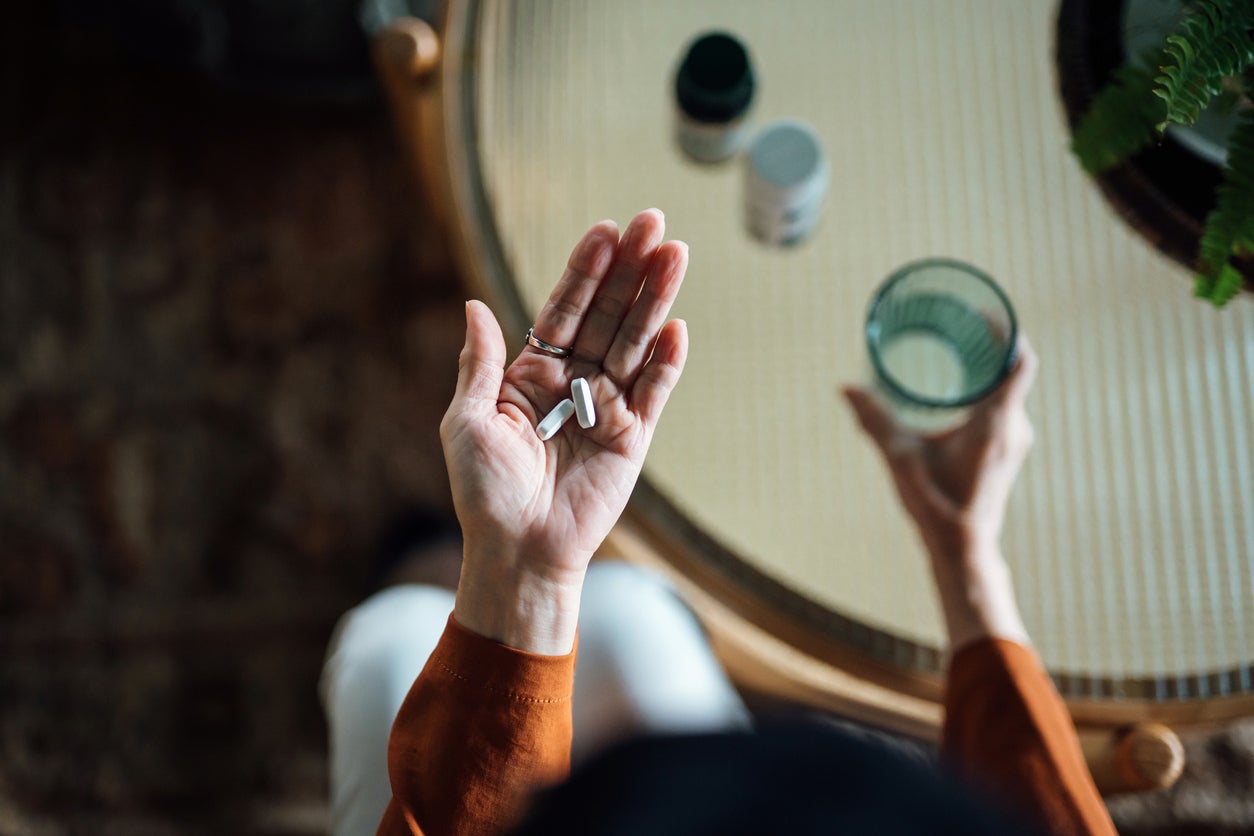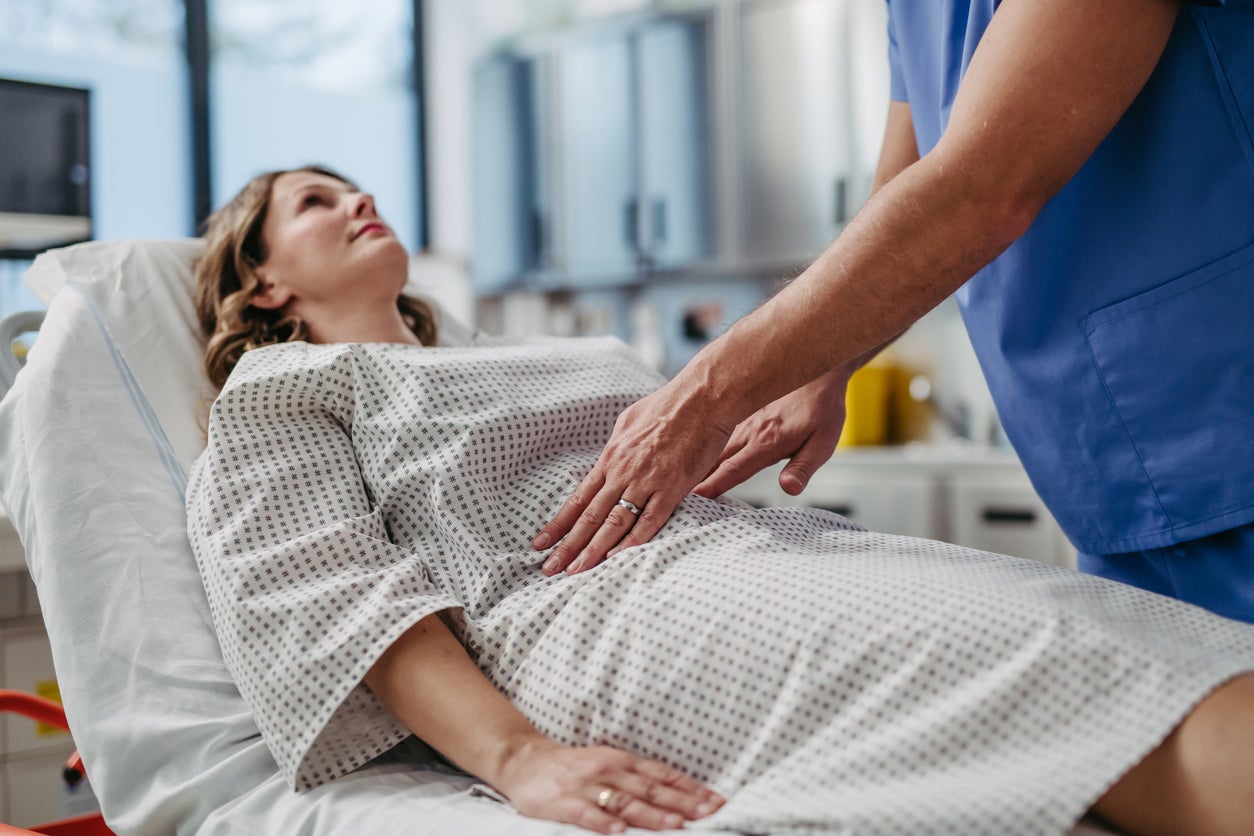‘It’s just period pain’: Why doctors are gaslighting women over endometriosis
A new study shows patients are dismissed, disbelieved and ‘fobbed off’ when they report life-altering pelvic pain. Helen Coffey investigates why gynaecological symptoms are often overlooked by medical professionals


Your support helps us to tell the story
From reproductive rights to climate change to Big Tech, The Independent is on the ground when the story is developing. Whether it's investigating the financials of Elon Musk's pro-Trump PAC or producing our latest documentary, 'The A Word', which shines a light on the American women fighting for reproductive rights, we know how important it is to parse out the facts from the messaging.
At such a critical moment in US history, we need reporters on the ground. Your donation allows us to keep sending journalists to speak to both sides of the story.
The Independent is trusted by Americans across the entire political spectrum. And unlike many other quality news outlets, we choose not to lock Americans out of our reporting and analysis with paywalls. We believe quality journalism should be available to everyone, paid for by those who can afford it.
Your support makes all the difference.I collapsed at a train station once. I thought I’d been shot in the stomach.” Harrie Dobby, a 36-year-old actor, says this matter-of-factly – perhaps because pain has become such an everyday part of her life. She’s been experiencing it on and off for more than 20 years, after all. Like the 1.5 million women in the UK who’ve had the condition confirmed by their doctors, Harrie believes she suffers from endometriosis. “Believes” – rather than knows – because she’s spent the best part of two decades attempting to get an official diagnosis.
“I’ve been gaslighted so much by medical professionals in that time, I’ve ended up gaslighting myself,” she says. “You start to think – maybe I’ve got a really low pain threshold? Maybe I’m being overdramatic?”
Endometriosis is a disease in which tissue similar to the lining of the uterus grows outside of it, often causing debilitating, life-altering pain and, in some cases, making it difficult to get pregnant. Awareness of the condition and its symptoms remains low among the public and medical professionals, despite the fact that around 10 per cent of British women or those who were assigned women at birth suffer from it. “It’s not at all uncommon,” says Emma Cox, the CEO of charity Endometriosis UK.

Harrie’s pain first started to get bad when she was around 15 years old. She went to the doctor because, with GCSEs on the horizon, she was concerned she wouldn’t be able to make it through an exam if she happened to be on her period. This was the beginning of a lifelong journey in which Harrie was consistently dismissed or given conflicting information.
“The first time, they fobbed me off and told me to take some Feminax [a brand of period pain relief],” she says. “In the years that followed I was given a different drug every time I went to the doctors: anti-nausea medication, codeine, Buscopan for irritable bowel syndrome, extra strong ibuprofen…”
Every few years, she would restart the process of trying to find out what was happening in her body. Each time, she got nowhere. Eventually, after her collapse at the train station, she was referred for an internal scan, which showed that her bowel and womb were stuck together. “They said that, as far as they could diagnose endometriosis without doing the full operation, they thought that’s what I had,” says Harrie. “At that point, I was told it was unlikely I could have kids.”
Concerned by these previous warnings about possible infertility, Harrie decided to start the diagnosis process one more time a couple of years on. She was referred to a specialist, went for an internal scan, and secured a follow-up appointment. Her experience with the specialist was not positive, to put it mildly.
The experiences of the women we spoke to are sad, shocking and reveal issues of systemic sexism that still exist within the healthcare system
“I walked into this office and the male doctor was on the phone,” she remembers. “I had to sit there waiting for a while before he finished his conversation. Then he said that, looking at my scan, there was no sign of anything wrong. He told me that ‘women sometimes feel a bit of period pain and then get the word endometriosis into their heads; everyone who walks through my door thinks they’ve got it, but it’s just period pain’.”
He also brushed off her infertility concerns – saying, “I don’t know why anyone would have told you that” – and said he could do an operation if she wanted but “didn’t see much point”.
“I thought, there’s absolutely no way I want this man to operate on me,” says Harrie. She gave up once again. “If a man walked into the doctor’s and said that every month his balls hurt so much he couldn’t work, he’d get given every test under the sun. My overall feeling is there’s this basic level of pain that women are just expected to put up with.”
Harrie’s story is far from being a one-off. According to a new study, women encounter multiple challenges and barriers in accessing help and support, both when seeking a diagnosis or when already diagnosed with endometriosis. Due to be published in the Journal of Health Communication later this month, the study by Manchester Metropolitan University saw 33 women interviewed and surveyed about their diagnosis, or their experiences awaiting diagnosis. “Medical gaslighting” was an issue they found as being systemic within healthcare, leaving women feeling “dismissed, disempowered and demotivated”.

“The average wait for diagnosis was around 11 years,” Dr Jasmine Hearn, senior lecturer in psychology and the paper’s lead author, tells me. “The experiences of the women we spoke to are sad, shocking and reveal issues of systemic sexism that still exist within the healthcare system. There’s a real lack of awareness of endometriosis and other gynaecological conditions. They’re not the first priority when people go to the GP.”
Instead, women are often treated for IBS or Crohn’s disease before menstrual health issues are investigated. A misunderstanding of what constitutes “normal” when it comes to periods is a big part of the problem, says Cox. “There’s this historic myth that periods are painful and women need to get on with it. But if it’s interfering with your day-to-day life, it isn’t normal. It’s a bit like saying a migraine is the same as having a slight headache.”
The fact that women are consistently told that they just need to grin and bear it, to accept severe chronic pain as a part of life, is hugely damaging, says Dr Hearn. “All these experiences build up on top of one another – they leave women feeling shamed and embarrassed to the point where they say they don’t even believe their own symptoms any more, they don’t want to go to the doctor’s, they don’t feel like anyone is being upfront or honest about what is wrong with them.”
As one study participant, Alice, 27, put it: “I feel a lot of mistrust towards the healthcare system in general, simply because I have been told that the pain was in my head, that I must have a low pain threshold or that I was in pain because I was fat.”
You start to think – maybe I’ve got a really low pain threshold? Maybe I’m being overdramatic?
Another issue is the societal taboo that remains around periods and menstrual health; “there’s a squeamishness there,” agrees Cox. Endometriosis symptoms include chronic pelvic pain, period pain that interferes with daily life, painful bowel movements, infertility or difficulty getting pregnant, and heavy menstrual bleeding – all subjects people shy away from discussing, including some medical professionals. “We’re talking poo, periods, painful sex, infertility – lots of taboos, all overlapping,” says Cox. “But it’s 2024: how is it that we still can’t have open conversations about all aspects of our health, including menstrual health?”
Study participant Emma, 21, said she’s experienced this stigma at first hand: “I have no problem talking about menstruation and periods – but it is people’s and society’s reactions to the topic that makes me feel as though I cannot say anything. Almost as if it is a women’s issue that you must deal with quietly and alone.”
I ask Cox whether male doctors are particularly bad at taking women’s pain seriously, but the answer may be more about generation than gender. “It’s across the board,” she says. “It’s more likely to be to do with when they received their education; female doctors also believe the myth of ‘periods are supposed to hurt’. There’s still a shocking lack of education about it.”
But what was apparent from the study was that women are “hyper-aware of systemic sexism and feeling oppressed by a male-dominated, patriarchal society, with male health prioritised over female”, says Dr Hearn. GPs of all genders recommended women in severe pelvic pain “try Pilates” or simply “relax”. Some women in the study suffered from having all-male managers, who didn’t believe their period pain was so extreme that they couldn’t work. “They feel oppressed because they’re not believed and not taken seriously,” adds Dr Hearn.
More funding for research and better education – both for members of the public and for medical professionals – will be key in seeing an improvement in lowering diagnosis times and better treatment of endometriosis, say experts.
“There needs to be a huge culture shift towards women’s health generally,” says Dr Hearn. “Our main recommendation is to improve training, to embed it as part of medical training – plus raise public awareness through public health messaging. There needs to be more service provision: more dedicated women’s health services, more pathways to gynaecological specialisms for medical professionals.”
The Endometriosis UK charity has successfully campaigned to get menstrual wellbeing and health to be included in the school curriculum (it was due to be added before Covid but the pandemic pushed back its inclusion); Dr Hearn’s team’s next steps involve getting healthcare professionals’ perspectives on what challenges they experience when trying to support patients with endometriosis.
For now, if you’re experiencing endometriosis symptoms, Cox recommends keeping a diary to help identify how often pain occurs, and where it emanates from. “Speak to your GP practice; they often have a doctor who specialises in women’s health, so request to see that person,” she says. “And everyone has the right to ask for a second opinion – do that if you’re not getting anywhere. If period pain is affecting your day-to-day life, or you’re experiencing painful sex, it’s not normal – and you are entitled to help.”
Join our commenting forum
Join thought-provoking conversations, follow other Independent readers and see their replies
Comments